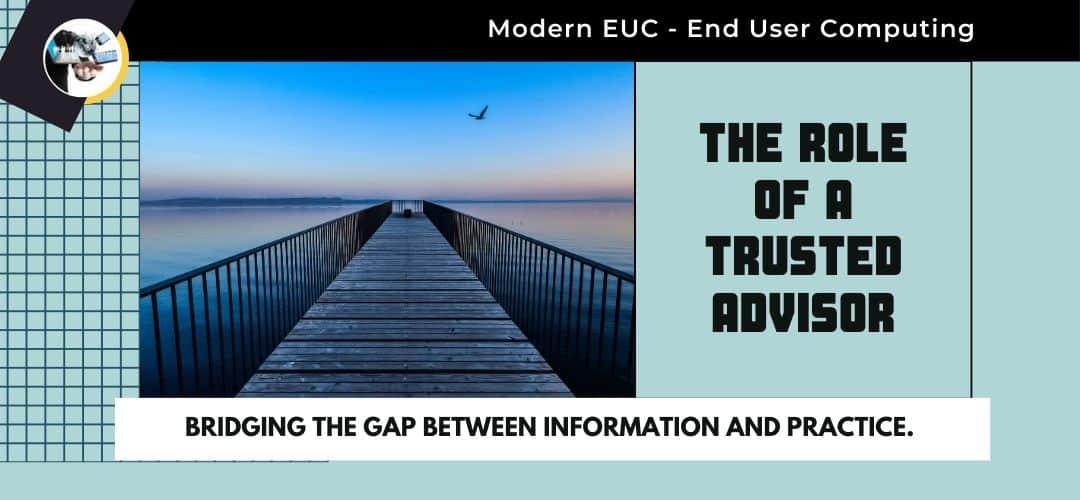From Salesperson to Trusted Advisor: Navigating the Shift

There is a lot of conversations about how Artificial Intelligence will be affecting many fields out there. The future has changed already ( Love that saying!) and we are all learning ways to adapt to it.
Two trends of note:
- The AI Revolution: Artificial intelligence is here, but it won’t replace skilled advisors. AI can’t empathize, understand context, or build relationships. The human touch remains invaluable. ( Did J.A.R.V.IS. replaced Tony Stark?)
- Complexity: Solution conversations are becoming more intricate. While information is abundant online, it doesn’t always address how a solution solves specific problems. Buyers face conflicting data, opinions which in turn make decisions challenging and sometimes daunting.
With so much change and transformation in the air, for those of us in the technical sales field, an old behavior in the relationship between sellers and buyers has become more important than ever. The behavior of the trusted advisor.
Trusted advisor is someone who possesses deep knowledge of their products and services. They bridge the gap between information and practical solutions.
Building Trust: The Long-Term Game
In today’s complex business world, having access to information is not enough. With the vast amount of data available at our fingertips, the real challenge lies in turning that information into actionable insights and practical solutions. This is where the role of a trusted advisor becomes invaluable.
- Transactional Sales: Focusing solely on immediate deals might yield quick wins. But remember, these victories are fleeting. The buyer’s trust isn’t guaranteed, and repeat business becomes a gamble.
- Trusted Advisor: This path requires patience. It involves nurturing relationships, understanding client needs, and providing tailored solutions. The payoff? Loyalty, repeat business, and referrals. When you’re a trusted advisor, clients turn to you for guidance, even beyond the initial sale. In other words, Long-Term Gains.
If you prioritize price in your conversations, you’re positioning yourself as a transactional salesperson. But here’s the catch: transactional sales roles are increasingly vulnerable. E-commerce and automated checkout processes threaten to replace them. Think about purchasing a vehicle from Tesla, Carvana, or Vroom—you can do it directly on their websites. If cars, one of the most significant consumer purchases, can be transacted without salespeople, other industries will follow suit.
The Importance of Trust in Modern Sales
In today’s competitive market, the traditional sales approach—where the best product or the lowest price wins—is no longer sufficient. Instead, trust has emerged as the ultimate currency. Buyers seek more than just a transaction; they crave a partnership built on confidence and reliability.
Some of the key differences:
| Sales | Trusted Advisor | |
| Aim: | Persuade and facilitate transactions | Impart knowledge, skills, and understanding to learners |
| Focus | Achieving specific outcomes, such as selling products or services | Teaching and mentoring fostering long-term relationships development |
| Purpose | Persuade and facilitate transactions. | Impart knowledge, skills, and understanding to learners. |
| Approach | Salespeople identify needs, present solutions, and address objections. Prospects evaluate options and make decisions. | Educators provide information, explanations, and context. Learners actively engage, ask questions, and absorb knowledge. |
| Outcome | Sales result in a transaction—whether it’s a purchase, subscription, or agreement. Sales is a short-term interaction with a specific goal. | Learners gain insights, expand their horizons, and develop critical thinking. Education is a long-term investment in relationship growth. |
Our role as trusted advisors is to guide clients toward the best decisions. Trust is the cornerstone; without it, decisions stall. So, focus on building trust—it’s the secret sauce for modern sales success.
Key Dimensions of a Trusted Advisor
A trusted advisors go beyond merely providing information; they act as a bridge between raw data and real-world applications. Their value lies in their ability to translate complex concepts into understandable terms and tailor their recommendations to the unique needs of their clients.
- Integrity: Be reliable, dependable, and trustworthy.
- Competency: Demonstrate expertise in your product or service.
- Empathy: Understand your client’s pain points and aspirations.
- Communication: Listen actively and communicate effectively.
- Problem-Solving: Offer solutions, not just features.
- Long-Term Focus: Prioritize relationships over quick wins.
At the core of a trusted advisor’s role is their mastery of their domain. They have invested significant time and effort into developing a comprehensive understanding of their products, services, and the intricacies of their industry. This depth of knowledge allows them to navigate the nuances and complexities that others might overlook, enabling them to provide insights that are both accurate and relevant.
However, knowledge alone is not enough. A trusted advisor must also possess excellent communication and interpersonal skills. They must be able to actively listen to their clients, understand their pain points, and craft solutions that directly address their specific challenges. This requires a high level of empathy and the ability to build strong, trust-based relationships with their clients.
Moreover, a trusted advisor is not merely a provider of information; they are a strategic partner. They work collaboratively with their clients, offering guidance and support throughout the decision-making process. Their role is to anticipate potential obstacles, identify opportunities, and provide proactive recommendations that help their clients achieve their goals more effectively and efficiently.
In an age where information overload is a common challenge, the value of a trusted advisor cannot be overstated. They cut through the noise, offering clarity and direction in a world that is often complex and overwhelming. By leveraging their deep knowledge and expertise, they help their clients navigate the intricate landscape of their industry, making informed decisions that drive success and growth.
Ultimately, a trusted advisor is more than just an expert; they are a valuable asset, a strategic partner, and a catalyst for positive change. Their ability to bridge the gap between information and practical solutions sets them apart, making them an indispensable resource for businesses seeking to thrive in an increasingly competitive and ever-changing market.

